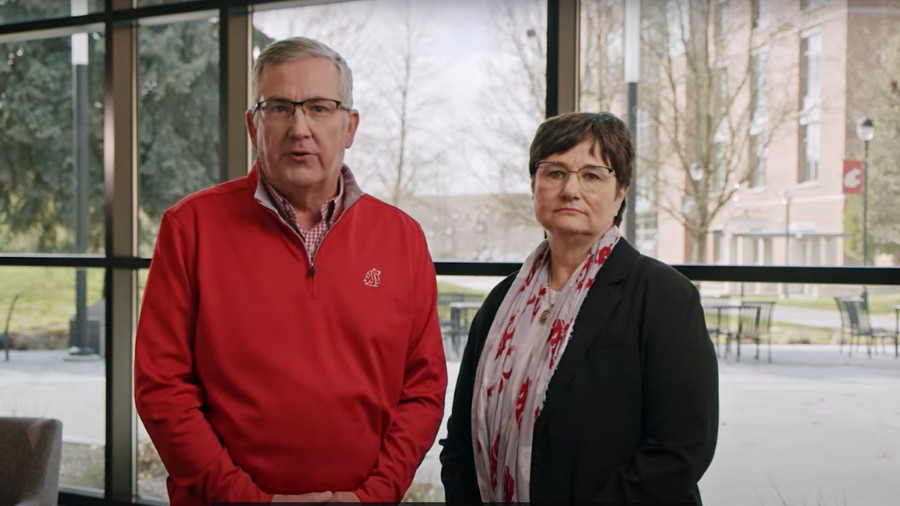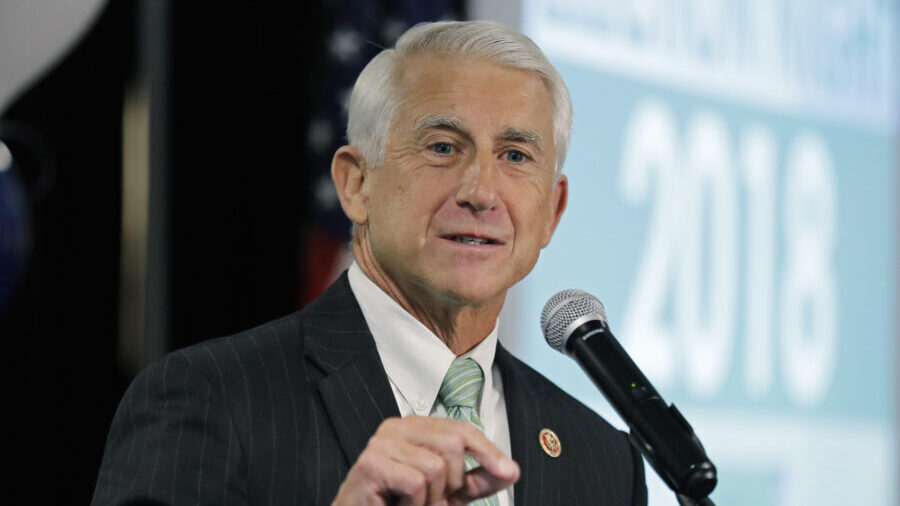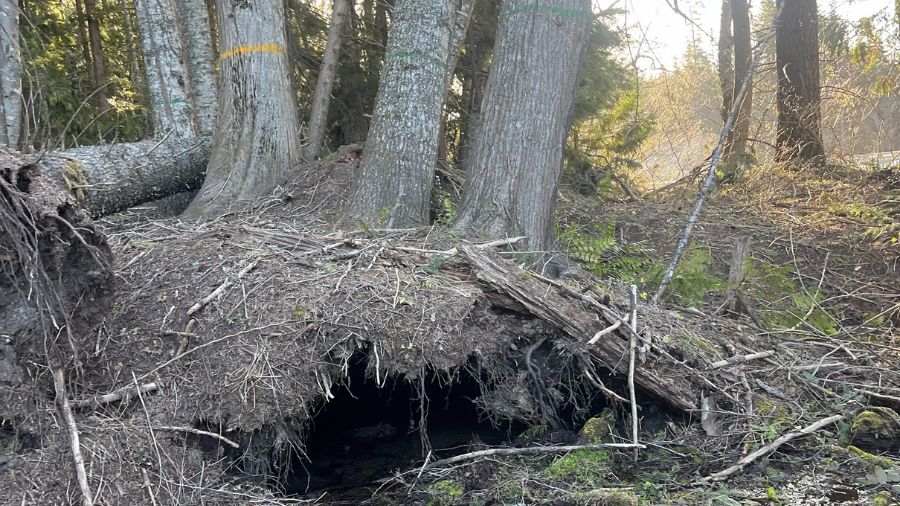Threat of wildfires growing in the Northwest amid climate change
Sep 19, 2016, 5:45 AM | Updated: 11:26 am

Wildfires hit north of Walla Walla, Wash. in August 2016. (Greg Lehman/Walla Walla Union-Bulletin via AP)
(Greg Lehman/Walla Walla Union-Bulletin via AP)
What happens when you combine forest management practices and mounting climate change? Wildfires. But not just your average fires. Climate change wildfires are expected to be much worse and much longer than in the past — especially in the Northwest.
That’s the conclusion a group of scientist who held a conference last week came to. They are now urging lawmakers to alter policies and budgets to prepare for a dramatic increase in wildfires.
Current forest management policies have allowed fuel for wildfires — wood debris, mosses, etc. — to accumulate. That fuel is waiting for a spark. And there’s a clock on that spark — called climate change. As the Earth warms, conditions for wildfires increase.
Scientists to Congress: Climate Change is real
“What we know is that the overall long-term trend is clear — climate change is contributing to longer, more intense wildfire seasons in the western US,” said Rachel Cleetus, lead economist and climate policy manager for the Union of Concerned Scientists.
Scientific evidence shows, Cleetus said, that the western wildfire season is lengthening. On average, wildfire season was about five months in 1970. Today, climate change wildfires are lasting as long as seven months and are expected to be longer in the decades to come.
“As temperatures increase, the area of land in the US projected to burn will also increase,” Cleetus said. “These worsening wildfire seasons are outstripping the capacity of state and federal agencies to respond and they are taking a terrible toll on communities in the path of these fires.”
“Simply put, our firefighting, forest management, and development polices haven’t caught up with the new realities of these worsening wildfires in a warming world,” she said.
Prelude to climate change wildfires
Robert Scheller is an associate professor in the department of environmental science and management at Portland State University. He has been studying forests throughout Oregon and Washington over the past couple decades.
The important take away from what Scheller said last week is that Northwest forests are not monolithic — they will not all react to climate change in the same way. Some forests will handle the changes better than other areas. The coast, for example, will likely brave the warming temperatures fine. The eastern portions of the states will not fair as well against climate change wildfires. What is known is that climate change is coming, and its effects will dramatically change Northwest forests.
Effects will likely be a series of droughts, fires, and insect outbreaks — which has already happened in Canada. So far, Washington and Oregon have been spared from the effects of climate change. California, Canada, and Alaska — not so much. But the line between the affected regions is closing in on the two states.
“Unfortunately, it’s unlike that Washington and Oregon will continue to avoid the worst,” Scheller said. “Although, we don’t know the exact effects of climate change until it arrives, what we are seeing, particularly in California forests, I believe is a prelude to the climate change future of the Pacific Northwest.”
Dr. Randi Jandt, a fire ecologist with the University of Alaska Fairbanks is well aware of the problem as well. She has watched the boreal forests in her state.
“The boreal forests are particularly a good laboratory for seeing the climate-induced change vs change brought by human management,” she said. “Because of the relative lack of human disturbance and fire suppression.”
“Up there we are warming at about double the pace of the more temperate continental forests of the west,” Jandt said. “That’s about .7 degrees Fahrenheit per decade since about 1950.”
The two warmest years on record in Alaska were 2014 and 2015, Jandt noted. In just one week in 2015 the barrage of lightning ignited 295 new fires which spread exponentially. The fires ultimately consumed 5.1 million acres of the 8.8 million that burned in the entire United States that year.
“Warming is felt to be the primary driver behind the doubling of multi-million acres fire season we’ve observed in the last couple decades,” Jandt said. “We’ve seen the early disappearance of snow, higher surface heating due to the snow free vegetation, and ice-free oceans … shrinking in permafrost, and changes in forest composition. This has already happened, I haven’t gotten to the future scenarios yet.”
Scientists expect that by 2050, the type of warming causing climate change wildfires is expected to double.
Climate change and policy
The increase in wildfires has taken a toll on agencies and budgets in recent years. In 2015, federal firefighter costs totaled more than $2.1 billion. That number was $240 million in 1985. Firefighting costs now consume more than half of the federal forest service’s annual budget. Wildfires are projected to take up two-thirds of its budget by 2025.
Climate change and the future of the Northwest
In order to face climate change wildfires, there needs to be a dramatic shift in policy, the scientists argue along with U.S Senator Maria Cantwell of Washington.
Cantwell and lawmakers are pushing for a series of policy and budgetary changes at the federal level to switch from a reactionary forest service to preventative measures. Such legislation includes things like the Wildfire, Budgeting, Response, and Forest Management Act.
“We are talking about in the United States Senate … doing risk-based fuel treatment in the right places and how that can prevent large-scale wildfires from taking so much of our forests,” Cantwell said.
“We cannot afford to play catch up once the fire is started,” she said. “We have to reduce fires and make sure that we are storing carbon as we think we can with innovative ideas like cross-laminated timber. There’s a lot of momentum and agreement on that would be a better way than to have 67 million acres burn up. Doing some fuel treatment and turning that into carbon storage would be a plus.”
That essentially means doing controlled burns in high-risk forests to remove fuel ahead of time. It also means taking wood debris for that cross laminated timber that Cantwell mentioned — a construction material formed with glue and small pieces of wood. It would essentially remove carbon from potentially burning and assuring it stays in solid form.
Cantwell said the industry has been highly receptive to the cross-laminated timber option.
The forest service already does some controlled burns and risk-based management of forests. But to head off climate change wildfires, it will need resources — budgeting — to operate on a scale that will work. This way, forests will be thinned, and fuel will be removed from the situation.
“They become barriers to the fire,” Cantwell said. “They become ways to protect parts of the landscape from the fire exceeding in an aggressive fashion.”













